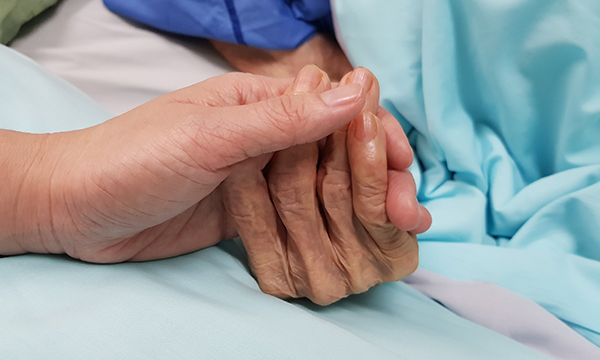Symptom management at the end of life for people with intellectual disabilities

Resource
Exclusive quality-assured learning resource
Online

Available to RCNi Plus subscribers
Applicable for any nurse with an RCNi subscription
People with intellectual disabilities are living longer while experiencing significant health conditions often resulting in a prolonged period of dying. Symptom management may be complex at end of life and the unique needs of each individual necessitates a person-centred approach.
This article discusses several symptoms at end of life including pain, anxiety, agitation, breathlessness and epilepsy, as well as their management strategies, focusing on the last days of life. Healthcare professionals may support people with intellectual disabilities at end of life in a variety of hospital or community settings. Therefore, they need to have the knowledge and skills to provide evidence-based care safely and effectively.
Contemporary approaches to ensuring that people with an intellectual disability can self-determine the management of their symptoms and that their circle of support is involved in a meaningful way will be explored, including advanced care planning and shared decision-making. This article presents a biopsychological perspective to end of life care and symptom management, which speaks to a holistic and respectful approach.
Who is this resource for?
This resource is aimed at nurses and nursing support workers across all settings and levels of practice, including students of health, social work and care professions.

 ;
; ;
; ;
; ;
;